Welsh rat trap ban catastrophic, says pest controller
- Published
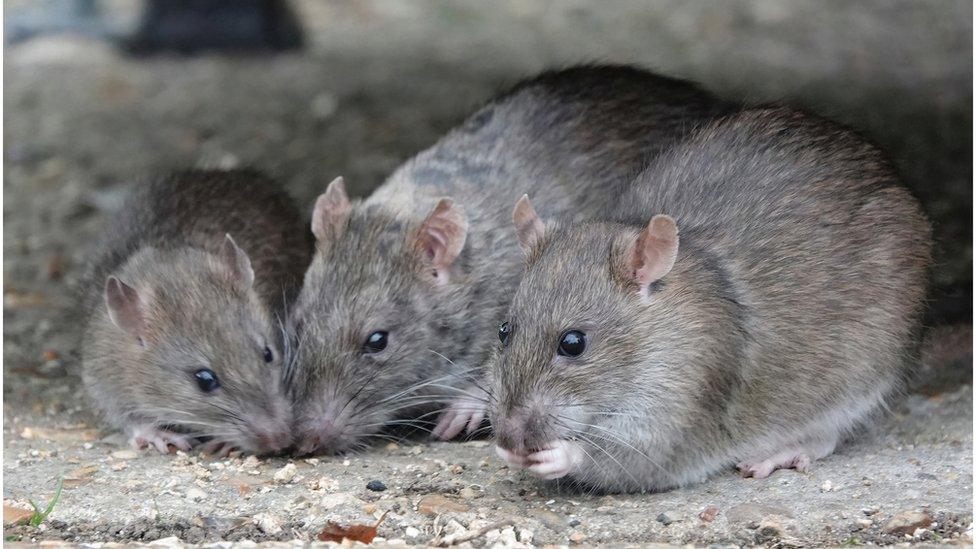
The glue trap ban has come into play to protect wildlife but Gareth Davies says it will make the jobs of pest control harder
A new ban on glue traps will allow "cat-sized rats" to run free in the streets, a pest controller has claimed.
Gareth Davies said the ban, starting on Tuesday, would be "catastrophic" for homes and businesses.
He said professionals only used it as a "last resort" but worried amateurs would still use them incorrectly and make his job more difficult.
The Welsh government said the decision was made to protect all wildlife and prevent "immense suffering".
Glue traps, or boards, are sticky tiles that are placed on the floor for rats to stick to and eventually die.
*WARNING: Article contains graphic pictures*
The ban, which also includes the use of snares, was part of the Agriculture Bill which went through the Senedd, external and is a first for the UK.
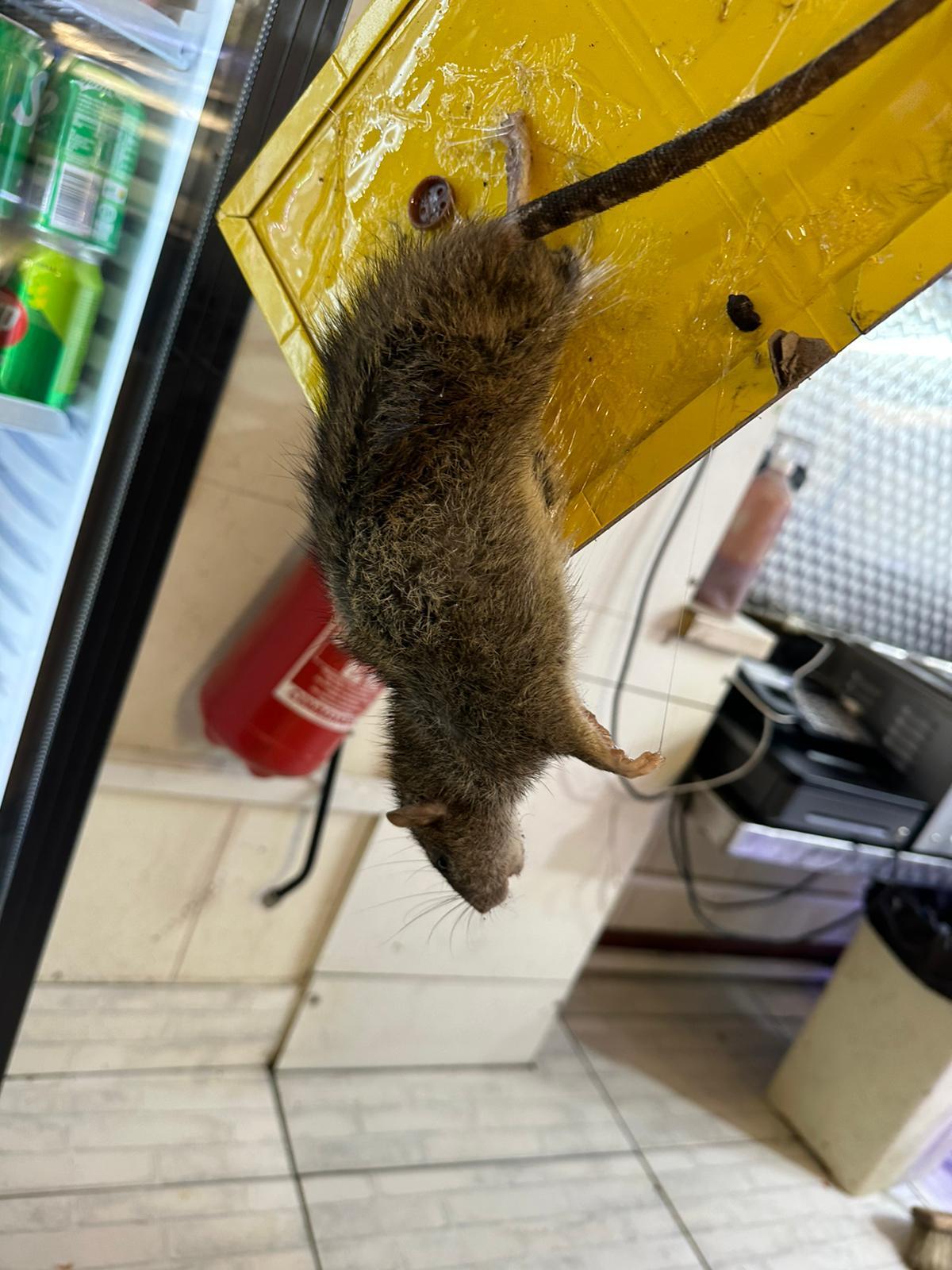
The glue traps are sticky tiles that are placed on the floor for rats to stick to
Gareth has worked in the industry for 34 years and said the rat problem has never been so bad.
"I was in a city centre restaurant on Tuesday and got called in by a customer... I located this rat wedged up inside between an oven and a fryer, and it was huge. It's the biggest rat I've seen."
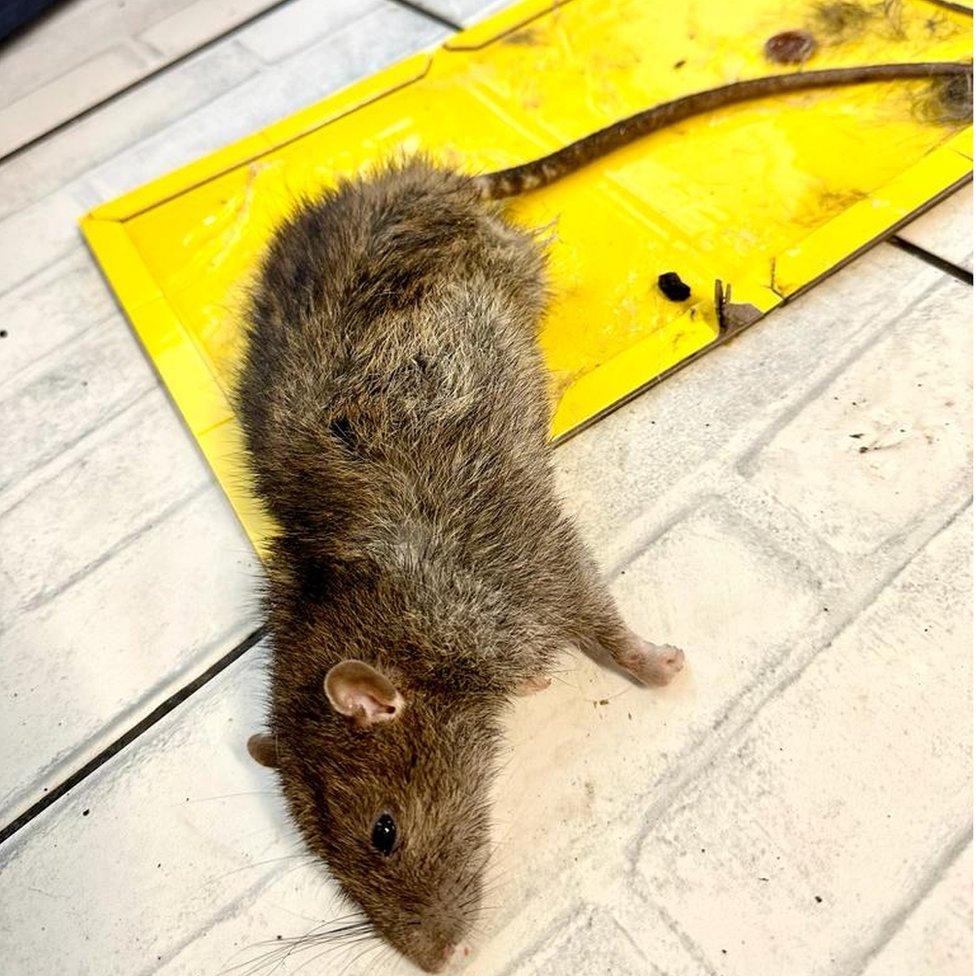
This rat, caught on a glue board, was 64cm long, says Gareth Davies
He said it was about 64cm and the size of a small cat.
He called the ban "catastrophic for the city centres" and that professionals checked traps regularly to ensure there was not any unnecessary suffering.
He agreed the traps were "barbaric" but were always used as a last resort.
"But when you've got a rat running round in a restaurant, that is the only option you have to catch it.
"What's going to happen in situations like that now?"
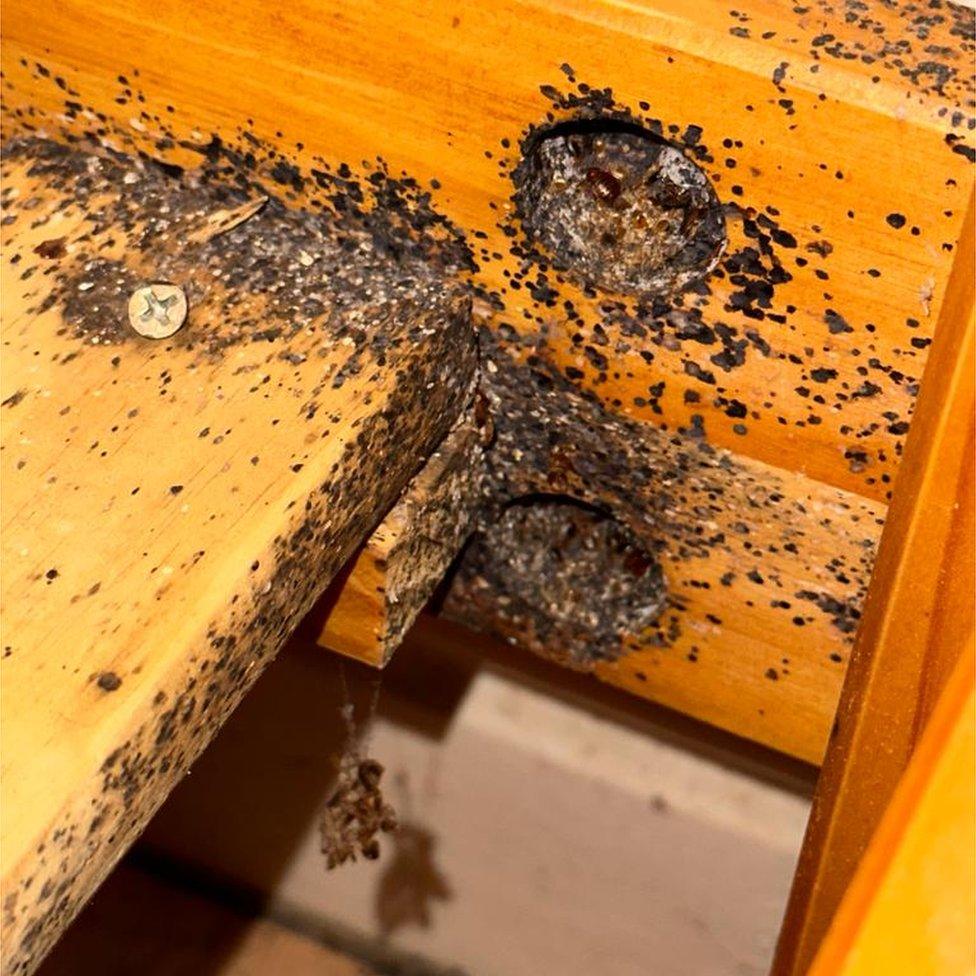
Gareth says the damage can be huge if rats are not caught efficiently
He said in cities including Cardiff and Wrexham, rats were becoming increasingly "trap-shy" and cited one example where they avoided traps and poison for weeks before he put down sticky boards "and I went back at 06:00 and I caught 15".
He added in densely populated student areas, he does two to three call outs a day and feels in cases where traps or poison fails, businesses will be forced to close to deal with the problem.
He believed an alternative would be banning the retail sale of glue boards and giving professionals extra training on how to use them properly.
"We're trying to do our jobs with at least one arm behind our back at the moment because we've got nothing else to help us."
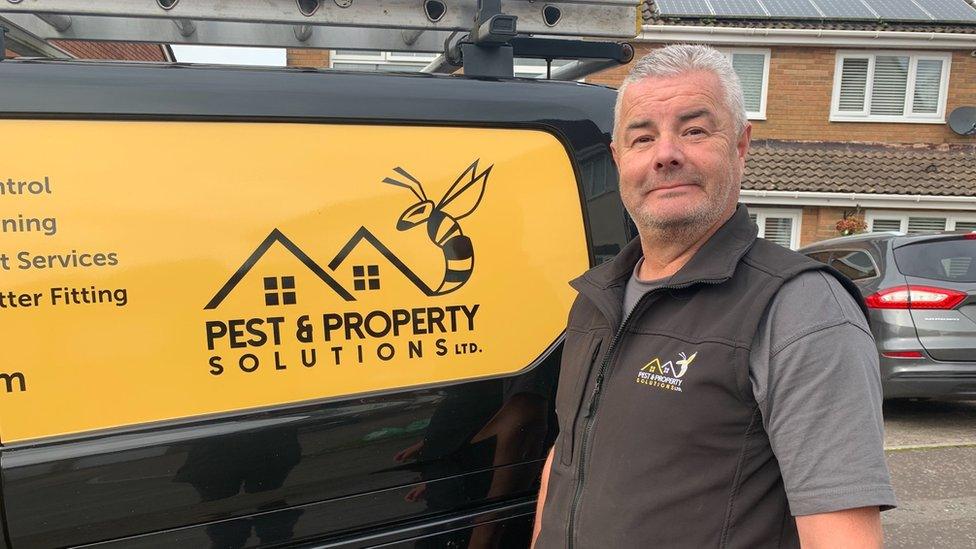
Gareth Davies has been a pest controller for 35 years
Billie-Jade Thomas, from RSPCA Cymru said the organisation welcomes the ban as they "cause immeasurable suffering to animals".
She added: "Too often, our officers have dealt with animals in severe pain and misery at the hands of these devices which are cruel, indiscriminate and totally unnecessary."
She said the ban followed a consultation period, supported by organisations, including the RSPCA and British Veterinary Zoological Society, and that some councils had already imposed the ban and had seen "no negative" consequences.
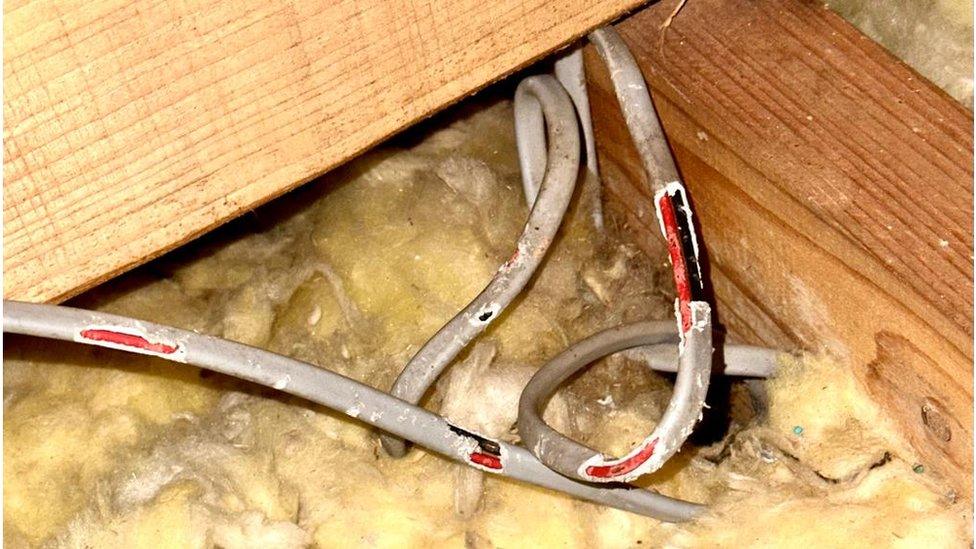
Rats have "diamond sharp teeth" that cause damage if used consistently, says Gareth
A Welsh government spokeswoman said: "Rodents can sustain serious and painful injuries and suffer greatly before they die and in some cases an animal may try to chew its own limb to break free.
"Trapped animals frequently suffer from exhaustion, dehydration and starvation and can drown in the glue.
"There are more efficient and humane ways to control rodents, which are widely used."
Related topics
- Published5 October 2023
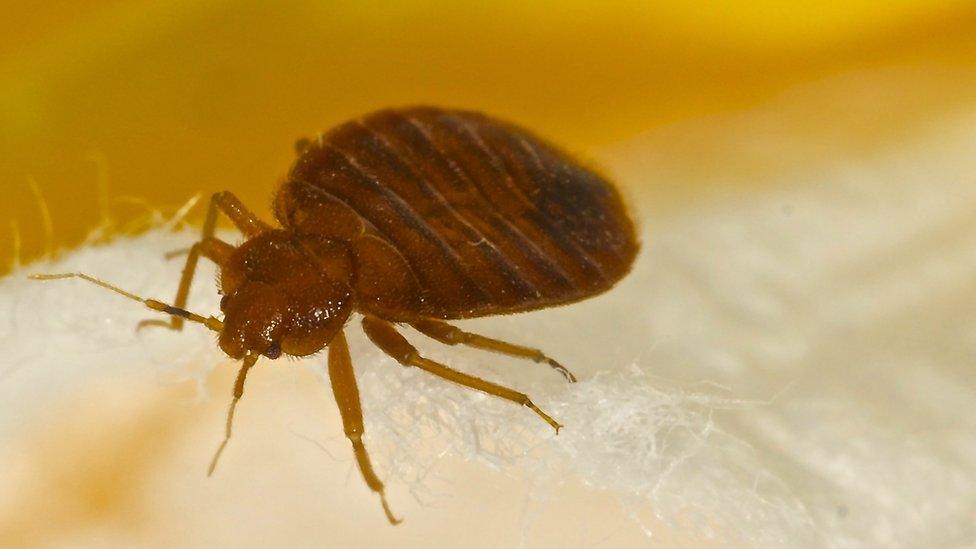
- Published27 August 2023

- Published2 March 2023
